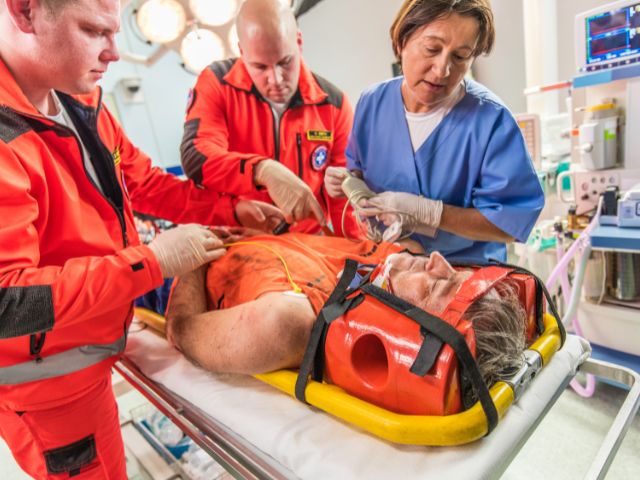So, What Did the Study Reveal About Emergency Nurses?
Pillars of a basic social process for emergency departments include:
- Driving forces
- Developing and using armories
- Balancing work-life
- Making emergency work effective
Intrinsic, extrinsic, and religious motivation were named as significant factors in retention under the driving forces category.
“I’ve always felt a strong desire to help people, which is why I decided to become a nurse and stick with working in emergency care,” Wenwen, an interview subject, told the authors. “Because there’s honestly nothing more fulfilling than being right there on the frontline, providing crucial support when people need it the most.”
Financial and nonfinancial rewards also emerged as “important drivers” because, as Dedi, another interview subject, said, “the rewards are higher than those in the regular hospital ward.”
Creating armories — tools and approaches for work in the emergency environment — is “crucial” to enhance resilience and effectiveness, the authors found, noting five key elements:
- Developing skillsets and expertise
- Integrating religious values into work
- Using regional languages and dialects
- Staying healthy
- Collegiality and workplace connectedness
Integrating religion was a “novel finding,” according to the authors, highlighting how nurses use their beliefs to sustain themselves in their work.
One nurse, Lili, told the authors her religion teaches to prioritize the wellbeing of her patients.
“These principles are what guide me in providing nursing care and help me thrive in my current job,” she said.
Using regional dialects or languages with patients can help build rapport and increase communication with patients, the authors stated.
Other nurses reported using the following tactics to maintain work-life balance:
- Being gentle with self
- Unplugging from work
- Managing domestic work and childcare
- Having familiarity normalizes the work
- Managing conflicts
In the final approach, nurses shared that an effective emergency team took on the following attributes:
- Working as a team
- Communicating effectively with patients and relatives
- Immersing professionally
- Persevering
- Taking pride









